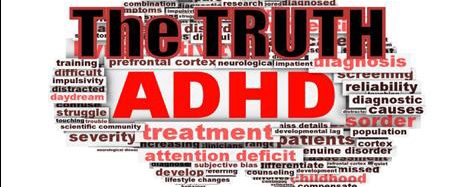ADHD has long been found to exist in comorbidity (meaning at the same time) with Bipolar disorder. In an article by Sachs et al., (Comorbidity of Attention Deficit Hyperactivity Disorder with Early and Late Onset Bipolar) it was found, almost beyond statistical significance, that children with ADHD, tend to have an earlier onset of Bipolar, when the two illnesses coexist. Out of all of the tested subjects in this study only the individuals that manifested Bipolar Disorder before the age of 19, also had a history of ADHD. In other words, when compared to Bipolar individuals who do not have ADHD, those with the learning deficiency seem to display Bipolar symptoms earlier on than those without ADHD. As a victim of both mental ailments, I know from experience, that studying this trend in comorbidity can be of great assistance in preventing the prolongation or exacerbation of Bipolar symptoms later in life (that is for individuals with ADHD as well).
Discovering symptomology to assess whether a child is more likely to later develop Bipolar can mitigate damage done by medical intervention, given in ignorance of the underlying illness. For instance, when I was diagnosed with Depression, I was put on a heavy anti-depressant that activated the dopamine neurotransmitters in my brain(or the energy centered neurotransmitters), and which ultimately led to my first manic episode. Because I too had been a child diagnosed with ADHD, and because I was 16 (below the age of 19 [early onset]), had the knowledge of the qualities inherent to comorbidity been unearthed at that time and had my physician investigated my psychiatric history, he may have foreseen that the drug (it was Wellbutrin, in case there is lingering curiosity) would cause my mood level to rise disproportionately.
Hence, a mood stabilizer could have been added to my psychotropic cocktail as a means of averting this manic episode, which was later followed by my first significant and quite catastrophic depressive experience.
Although the drug that ignited my mania was not Adderall, amphetamines can enflame a Bipolar’s mood by elevating it uncharacteristically. That is where the following evidence may be of use in properly medicating children and adults with Bipolar and ADHD Comorbidity. Since the study goes on to point out that children of parents with Bipolar disorder have a greater chance of developing the illness themselves, and usually have a co-occurring ADHD disorder, a physician, taking into account family history, can forgo treatment with stimulants for patients at high risk for developing Bipolar, since it has been found that stimulants may provoke Mania.
The big takeaway here is that children with ADHD, later to develop Bipolar Disorder, manifest the illness before those who do not have the attention difficulties to begin with. By being informed of comorbidity and its underlying characteristics physicians and families can avoid the disastrous effects of the kinds of medical intervention that are contradictory to symptom improvement.


Absolutely composed content material, Really enjoyed looking through.